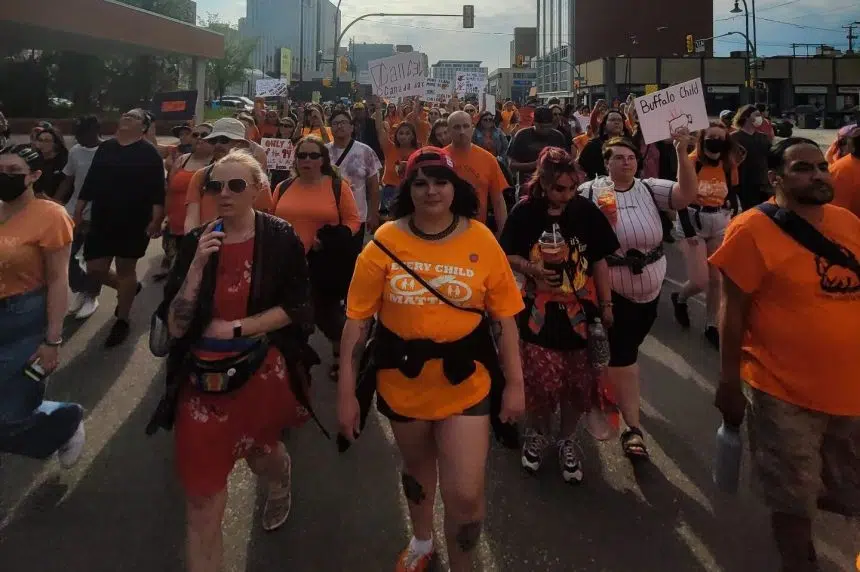Thousands of people enjoyed Canada’s 155th birthday on Friday, but not everyone felt like celebrating.
An Indigenous-led group called Chokecherry Studios hosted a Cancel Canada Day event in downtown Saskatoon at Kiwanis Memorial Park.
The purpose of wanting to cancel Canada’s anniversary is to help raise more awareness towards MMIWGT2S (Missing and Murdered Indigenous Women, Girls, and Two-Spirit) and Indigenous children that were affected from past residential school experiences.
Allison Forsberg is the Wapahki Assistant Coordinator with Chokecherry and talks about why the organization came up with the idea to cancel the traditional Canada Day celebrations.
“Cancel Canada Day is to bring the community together. Canada Day is celebrating genocide on land that basically tried to eradicate our Indigenous people,” Forsberg said.
“It’s unfortunate, I feel like people here don’t really understand the context as much. People that do celebrate Canada Day, they don’t recognize what they’re actually celebrating.”
“There’s not really a meaning behind it. They go, they drink and they party…. And that’s kind of what it’s about.”
Forsberg says this is the second year they’ve hosted this event on Canada Day. According to Forsberg, the last time over 4,000 people showed up to be a part of history.
“All these people come here to have a sense of community and belonging. Being able to provide healing, (and) a safe place to grieve for our ancestors and our family,” Forsberg said.
“Trauma is very real and still with us so it’s not your time to tell us how we’re suppose to heal.”
Forsberg broke down how the event went. The day started with a prayer by an elder, before several speeches from leaders. Afterwards a smudge walk takes place, followed by an art instillation and a flash mob round dance.
She says nearby fireworks going off during the healing process was difficult to get through.
“A lot of the time people within Saskatoon are unaware. They don’t have to face the issues we do.
“There’s going to be fireworks going on at the same time. The contrast is going to be intense and a lot of people are going to feel the lack of empathy and understanding that Indigenous people aren’t important, and they are going to continue celebrating.”
In terms of the future of the holiday, Forsberg says she hopes we can all come together to celebrate as one.
“Hopefully just a celebration for recognizing the land we’re on that does belong to Indigenous people.
“You can’t have reconciliation without truth and what we’re doing is trying to provide truth first. Hopefully, we can continue on for the next few years and people can have a sense of belonging.”







